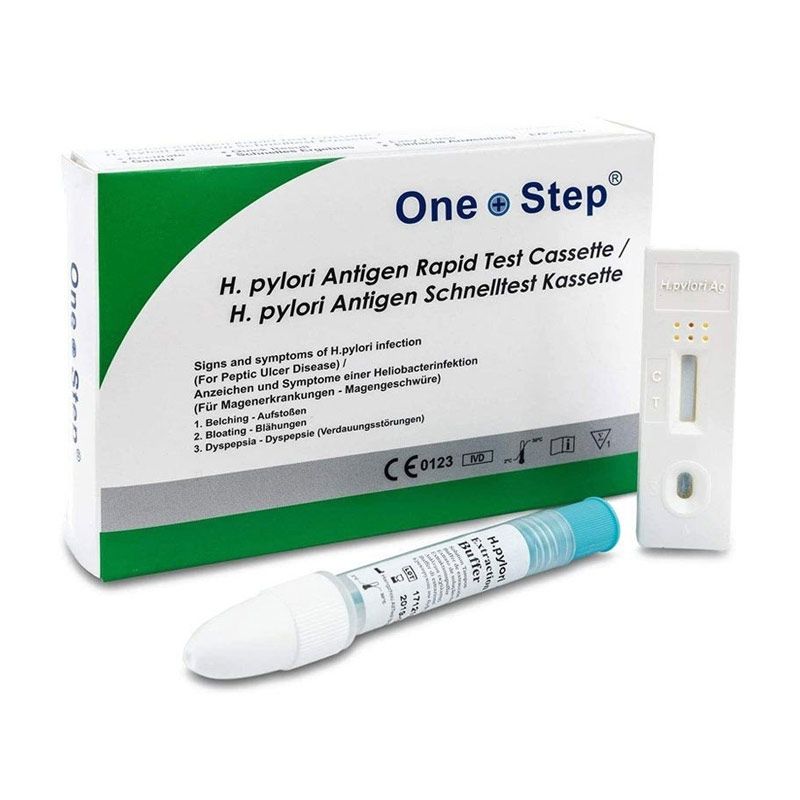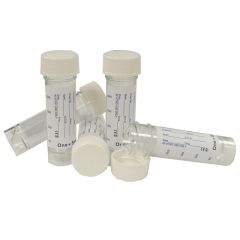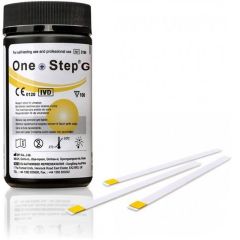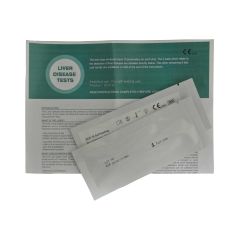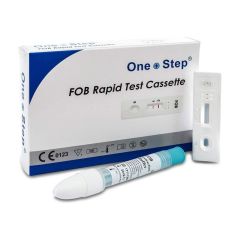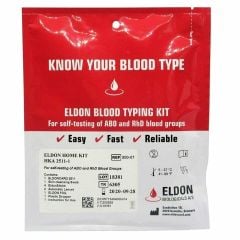Stomach Ulcer Test (H Pylori) - One Step
A very common approach for testing for a Pylori infection is a Serological test (blood test) that look for the antibodies in your blood of an infected patient. The main limitation of a serology test is the inability to distinguish current and past infections. Antibody may be present in the patient’s serum long after eradication of the organisms.
H. pylori Stool Antigen testing is gaining popularity for diagnosis of H. pylori infection and for monitoring the efficacy of the treatment of H. pylori infection. Studies into H. pylori Stool Antigen have found that more than 90% of patients with duodenal ulcer and 80% of patients with gastric ulcer are infected with H.pylori.
- More accurate than blood antibody testing
- Simple and easy to use test for use in your own home
- Fully CE marked for self-testing
- Contains all you need to carry out the test
- Results in 10 minutes
What are Helicobacter pylori and stomach ulcers?
According to estimates, today around half of the world’s population are infected with Helicobacter pylori, although not every infection produces symptoms. The bacterium Helicobacter pylori (“H. pylori”) causes conditions such as gastritis and stomach ulcers. There is yet no immunisation available against the infection, which occurs in both children and adults. However, the use of the appropriate medication (such as antibiotics) can eliminate the bacterium.
The stomach lining and duodenum are both protected against stomach acid by a protective coating. If this protective function is disturbed in any way, the mucous membrane of the stomach can be damaged, leading to ulcers. This typically happens due to H. pylori infection, which also increases the risk of developing stomach cancer.
In most cases, H. pylori infection can be treated very successfully using a combination of antibiotics and antacids. Once the bacteria have been eliminated, gastritis is generally cured.
How does the H. pylori test work?
Pylori is a small, spiral-shaped bacterium that lives on the surface of the stomach and duodenum. The H. Pylori Test specifically detects the antigens in faeces to ascertain the presence of the bacterium.
Why do I need this test?
A very common approach for testing for a Pylori infection is a Serological test (blood test) that look for the antibodies in the blood of an infected patient. The main limitation of a serology test is the inability to distinguish current and past infections. The antibody may be present in the patient’s serum long after the eradication of the organisms.
H. pylori Stool Antigen testing is gaining popularity for the diagnosis of H. pylori infection and for monitoring the efficacy of the treatment of H. pylori infection. Studies into H. pylori Stool Antigen have found that more than 90% of patients with duodenal ulcers and 80% of patients with gastric ulcers are infected with H.pylori.



